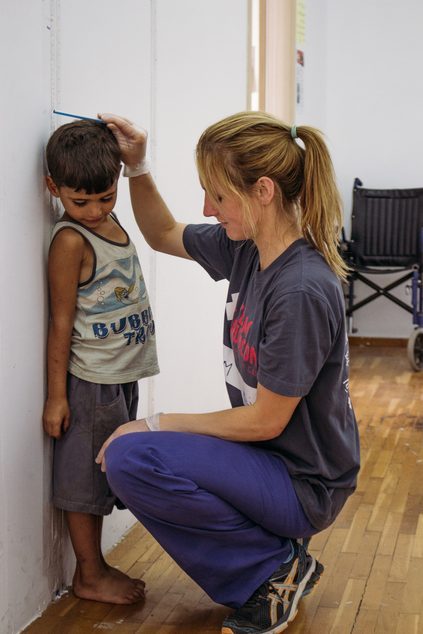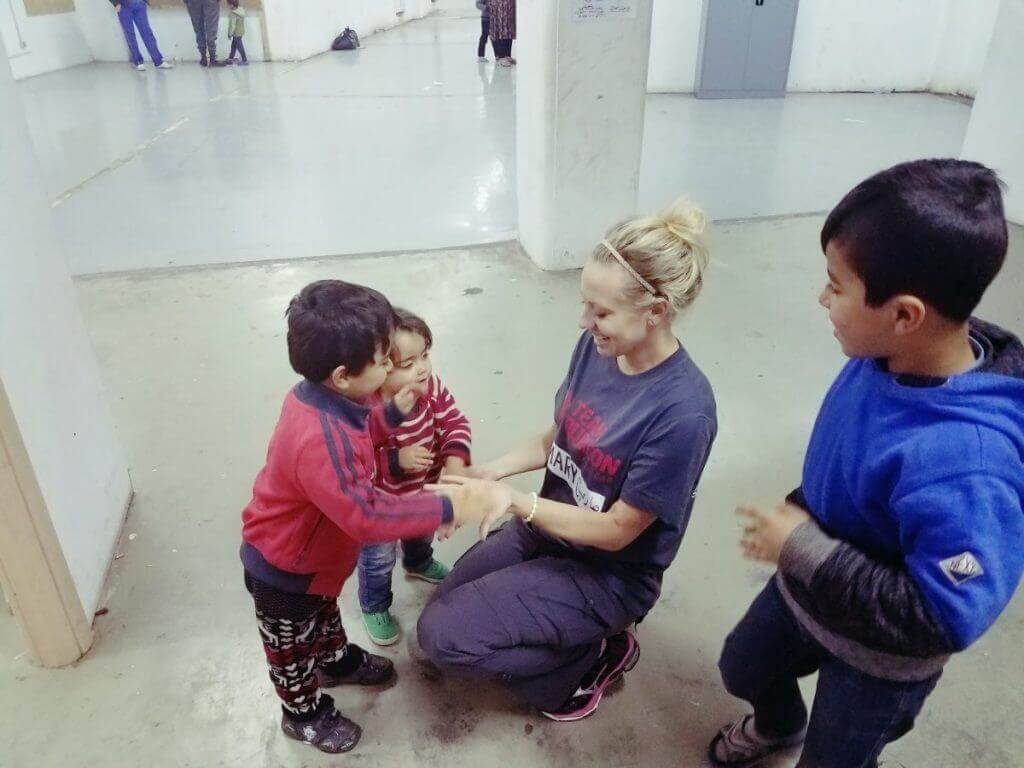Leaving Greece Humbled and Elevated
Nurse Practitioner and Greyshirt Mary Corder reflects on providing care to the underserved refugee population of northern Greece in 2016.
Editor’s Note: As Team Rubicon begins to respond to the crisis in Ukraine, we’re reflecting on past humanitarian operations. Greyshirt and Nurse Practitioner Mary Corder wrote this reflection in 2016 after serving on Operation Hermes in which Team Rubicon volunteers provided primary medical care at a clinic in northern Greece to help alleviate suffering and prevent further injury to the Syrian refugee population.
When I first told my friends and family that I was embarking on Operation Hermes with Team Rubicon, the reactions were mixed. There were those who viewed my mission as noble and courageous. There were those who viewed it as simply an exciting adventure and chance to travel. And then there were even those who viewed my decision to go as both dangerous and, curiously, somehow selfish.
As often happens in life, none of their expectations, nor none of my own, failed to capture the essence of my experience. Yes, there was majestic scenery, exploration, and excursions that provided wonderful memories, but the truth is, it was not remarkably glamourous or dramatic. In fact, it was often mundane. But these seemingly mundane moments offered an unadulterated view of humanity in all its poignancy, rare moments that have left me feeling both humbled and elevated.

Over the course of my deployment, I witnessed a group of people, each of us with our own egos and insecurities, potentially separated by religious, ethical, and cultural values, transcend to a higher form and come together for a greater good.
Perhaps what struck me the most is the authenticity, passion, and resourcefulness I witnessed from my colleagues. A little girl physically walked for the first time because of the efforts of one team member, a person who has continued to dedicate time to this cause even after having returned home. A family was able to sleep soundly because a team member offered to sacrifice sleep and personally monitor their sick child overnight.
Young members of the community were empowered with invaluable life-saving skills taught by one team member, knowledge that will inevitably touch the lives of countless others. After months of physical and psychological rejection, a new family of refugees found themselves welcomed by a team member who embraced and then carried their child, as they walked side by side on the way to their new residence.

Instead of embracing what might have been much-needed alone time, team members spent their lunch breaks interacting with families. While it would have been easy to provide minimal treatment, my colleagues instead spent time researching, consulting, counseling, and reassessing patients, as well as coordinating transport and logistics behind the scenes to ensure the best possible care. I also witnessed my team providing this same care for each other, comforting one another, assisting one another, protecting one another, and ensuring that any tension or sadness was diffused with laughter.
And as for the people we came there to serve? They opened their hearts and minds to us. They took the time to actually listen, and not just hear. They took the time to actually see us, and not just visualize. Young men and women under incredible conditions directed their efforts into a passion for learning new languages to assist with interpretation. Families who could have been consumed by their own tragedy welcomed us into the fold, inviting us into the privacy of their rooms for homemade meals. If it was thought that a team member was cold or hungry or had a superficial injury, they were quick to express concern over our well-being. In many ways, they gave every bit as much of themselves as we did. It struck me that the sentiment that I heard most throughout my time there, especially upon leaving, was that of the concept of remembrance. We were often told that we would never be forgotten, as well as asked that we would in turn not forget them. My response would be this:
This harsh and splendid land,
with snow-covered rock mountains, cold crystal streams,
deep forests of cypress, juniper, and ash
Is as much my body as what you see before you here.
I cannot be separated from this or from you.
Our many hearts have only a single boat…
If wisdom and harmony still dwell in this world,
As other than a dream lost in an unopened book,
they are hidden in our heartbeat.
—The Warrior Song of King Gezar